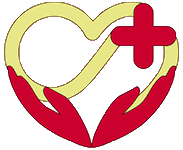Expanding on the topic of whether your coffee habit involves too much caffeine, let’s explore more details, including the science behind caffeine consumption, its effects on the body, and actionable steps to assess and manage your intake.

The Science of Caffeine and How It Works
How Caffeine Affects the Body:
Caffeine blocks **adenosine receptors** in the brain. Adenosine is a chemical that promotes relaxation and sleepiness. By blocking it, caffeine increases alertness and reduces fatigue.
It stimulates the release of adrenaline, which triggers a “fight-or-flight” response, giving you an energy boost.
Caffeine also increases dopamine levels, which can improve mood.
Metabolism of Caffeine:
The effects of caffeine can last from **4–6 hours**, depending on your metabolism, age, and tolerance.
Genetics also play a role. Some people metabolize caffeine quickly, while others process it slowly, making them more sensitive.
Symptoms of Too Much Caffeine
1.Short-Term Effects:
.Shakiness or trembling hands
.Sweating or feeling overheated
.Upset stomach or diarrhea
.Increased blood pressure
.Heart palpitations
2.Long-Term Effects:
.Chronic insomnia
.Persistent anxiety or restlessness
.Dependency or withdrawal symptoms
increased risk of gastrointestinal issues like ulcers or GED
.Osteoporosis risk due to calcium depletion in heavy coffee drinkers
3.Extreme Overdose Symptoms** (rare but serious):
– Confusion or hallucinations
– Severe heart irregularities
– Seizures (occurs with very high caffeine doses exceeding **1,200 mg/day**)
Daily Caffeine Recommendations**
Safe Levels:
The FDA states up to **400 mg/day** (about 4–5 cups of coffee) is generally safe for most adults.
Pregnant women** are advised to limit caffeine to **200 mg/day** to avoid risks to the fetus.
Children and teens should consume caffeine sparingly, if at all, due to their smaller body size and developing systems.
Hidden Sources of Caffeine:
.Energy drinks: Can contain 100–300 mg per serving.
.Soft drinks: About 30–50 mg per can.
.Chocolate: Especially dark chocolate, which can have up to 20 mg per ounce.
.Medications: Some pain relievers and cold remedies include caffeine as an ingredient.
How to Evaluate Your Coffee Habit
1.Understand Your Tolerance:
People who drink coffee regularly build a tolerance over time. However, a sudden increase in consumption can lead to negative effects, even in seasoned coffee drinkers.
2.Use Tools to Monitor Intake:
Apps or journals can help you track caffeine sources, frequency, and side effects.
Measure servings accurately. A “cup” of coffee is often larger than 8 ounces in modern mugs or coffee shop servings.
3.Assess Your Lifestyle:
Are you relying on coffee to mask fatigue from inadequate sleep or poor diet?
Does skip a cup lead to headaches, irritability, or poor performance?
Tips to Reduce Caffeine Intake
1.Gradual Reduction:
If you’re consuming more than 400 mg/day, reduce your intake by **50–100 mg** per day to avoid withdrawal.
2.Timing Is Key:
Stop drinking at least **6–8 hours** before bedtime to avoid sleep disruption.
3.Switch to Lower-Caffeine Options:
Try half-caff or decaf coffee.
Replace one cup of coffee with herbal tea or water.
4.Pair with Other Energy Sources:
Opt for snacks high in protein and healthy carbs, like nuts or fruit, to sustain energy naturally.
Special Considerations for Certain Individuals
Pregnant or Breastfeeding Women:
Excess caffeine can cross the placenta, affecting fetal development.
Breastfeeding mothers should monitor infants for signs of irritability if consuming caffeine.
People with Anxiety or Heart Conditions:
Caffeine can worsen anxiety or exacerbate heart conditions like tachycardia.
Discuss intake with a healthcare provider.
Caffeine-Sensitive Individuals:
Those with genetic sensitivity should avoid high doses, even if they consume it infrequently.

Alternatives for Energy
.Hydration:Hydration stands as a cornerstone for preserving the body’s fluid harmony and facilitating optimal physiological operations. Water comprises a significant segment of our body weight, serving a vital function in essential processes such as digestion, nutrient transportation, thermoregulation, and waste removal. Maintaining proper hydration is key to achieving luminous skin, bolstering cognitive abilities, and enhancing athletic performance.
In contrast, dehydration can usher in fatigue, hinder concentration, and even precipitate severe health concerns such as kidney stones or heatstroke. To ensure one remains adequately hydrated, it is imperative to consume sufficient water throughout the day, particularly during physical exertion or in elevated temperatures, alongside enjoying hydrating foods like juicy fruits and vibrant vegetables.Dehydration often causes fatigue. Drinking water can provide a natural energy boost.
.Exercise:Engaging in exercise serves as a natural and potent means to elevate your energy levels and diminish fatigue, all without the need for stimulants like caffeine. The act of physical activity enhances circulation, ensuring that oxygen and vital nutrients reach your muscles and brain, thereby sharpening your alertness and concentration. Furthermore, it stimulates the release of endorphins, often referred to as “feel-good” hormones, which can uplift your mood and alleviate stress.
Even gentle forms of exercise, such as stretching, walking, or yoga, can impart a revitalizing boost. Consistent physical activity also fosters improved sleep quality, reducing your reliance on to remain alert throughout the day. By weaving movement into your daily routine, you cultivate a sustainable approach to sustaining energy and enhancing your overall well-being.Light physical activity like stretching or walking can increase alertness without caffeine.
.Sleep Hygiene:
Prioritize **7–9 hours of quality sleep** to reduce dependency on stimulants.
When to Seek Help
If your consumption causes significant health issues (e.g., persistent insomnia, severe anxiety, or digestive problems) or disrupts your daily life, consult a doctor. A professional can help assess your habits and recommend personalized changes.
By understanding the signs of overconsumption and managing your intake, you can enjoy coffee’s benefits without compromising your well-being.
